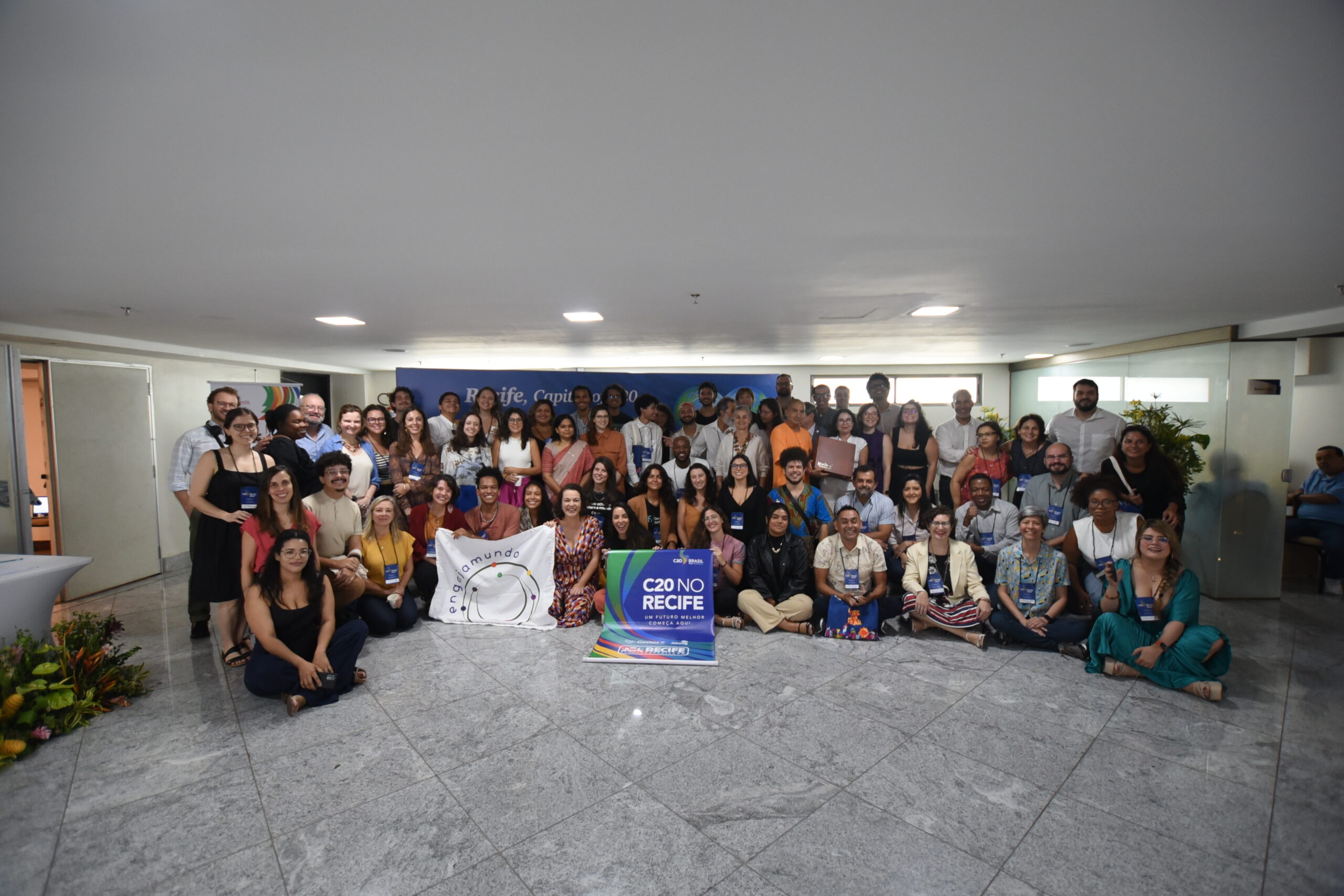With Redação Gestos
On March 26th, 27th, and 28th, Recife hosted the C20 Brazil Inception Meeting. Bringing together organized civil society from at least 60 countries and 2,100 entities, the gathering turned the capital of Pernambuco into the epicenter of discussions on political advocacy strategies to influence the Group of Twenty (G20), the world’s largest economies.
This year, under the coordination of Gestos and chaired by the Brazilian Association of NGOs (Abong), C20 Brazil faces complex challenges. The city of Recife, with its vulnerability to climate change, was chosen as the ideal location to host the inaugural meeting and establish the group’s engagement strategies, aiming to formally present its recommendations to the G20 governments in July 2024, focusing on the construction of a new global economic framework that is fair, equitable, and anti-racist.
On the first day, the event was opened and livestreamed on YouTube. It was two working sessions (morning and afternoon) with roundtable discussions featuring representatives from civil society organizations and members of C20 working groups.
The opening panel included C20 President Henrique Frota, C20 Sherpa Alessandra Nilo, Vice Governor Priscila Krause, as well as representatives from other engagement groups and ministries of Environment and Climate Change, Women, and the General Secretariat of the Presidency.
For Henrique Frota, president of the C20 and director of Abong, the meeting was a key moment in the annual rounds. “The Inception Meeting fulfilled two objectives because, in addition to being the first public debate of the C20 and setting the tone for what the priorities of civil society will be this year, it also brought together in person the co-facilitators of our 10 working groups and the International Committee, allowing us to carry out our strategic planning until November, when the leaders’ summit takes place here in Brazil,” he adds.
“The G20 comes to Brazil at a very particular moment in the history of society as a whole, as it comes at a time of multiple crises [economic, social, and climate]; but the G20 was already created to solve financial crises that it has never been able to solve (often created by the G20 member countries themselves),” commented C20 Sherpa Alessandra Nilo.
“The C20 plays a vital role in seeking solutions, ensuring that the voices of civil society are heard and taken into account during G20 meetings. And also, for global policies and decisions to reflect the interests of cities, people, everywhere in the world,” said Silvio Almeida, Minister of Human Rights and Citizenship, in a video presented on the first day. Minister of the General Secretariat of the Presidency of the Republic of Brazil, Márcio Macêdo, acknowledged the importance of the C20 in the process of influencing the G20.
Throughout the entire schedule of the first day, discussions revolved around topics such as the integration between global issues and local realities, the importance of civil society participation in decision-making, and the need to propose concrete solutions to multiple and complex global challenges.
On the 27th and 28th, the working group meetings were internal.
